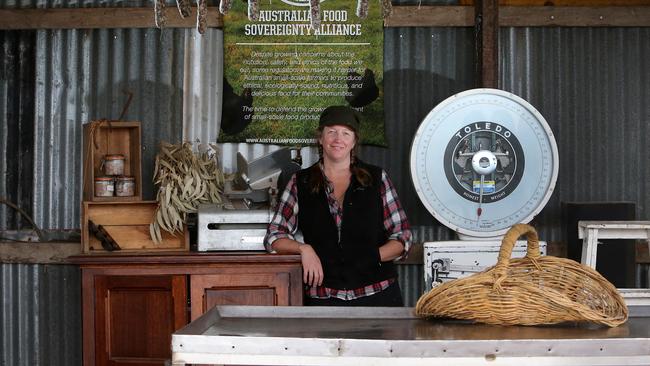Shock end to small service kills at Victorian abattoir
News of a Victorian abattoir ceasing service kills for small orders has shocked small scale producers, with only weeks until the changes come into effect.
A Victorian abattoir has announced it will end service kills for small numbers of lambs and cattle, in a move that has rocked small-scale producers who butcher their own livestock.
The decision comes days after a Senate inquiry report made recommendations to protect small-scale abattoirs and meat processing from reliance on larger commercial abattoirs.
Hardwicks Meatworks at Kyneton is understood to have informed producers this week revised kill arrangements will take effect in January 2025, with a new minimum number of 15 for beef service kills and 50 for lamb and other small stock.
Eganstown pig producer Tammi Jonas said producers were “devastated” by the news, which raised concerns for the future of small-scale livestock farming as the pool of abattoirs providing service kills shrinks.
“We’re killing three animals this Monday, we only do one a month and it’ll tide us over, but for others who don’t have an options, they’re just cut off,” Ms Jonas said.
“There’s not been any formal warning signs. But I have said all year that we’ll be lucky to make it to the end of the year.”

Ms Jonas said she’s made inquiries at other abattoirs such as Yarrawonga, “and they can’t fit us in”.
“There’s maybe an option at Bairnsdale, if people want to drive livestock for six hours, which is awful for animal welfare, and they may not be able to absorb this.”
Pig and Earth producer Will Bennett is based at Kingston near Daylesford, and has between three to six lambs processed at Hardwicks each month, before butchering the carcasses himself.
He said he had already moved from Castle Estate when the abattoir ceased service kills earlier in the year, moving his lams to Hardwicks and his pigs to Diamond Valley.
“This is the second time I’ve lost an abattoir,” Mr Bennett said.
“It puts our business model up in the air now.”
Mr Bennett said the cost to have his lambs processed is about $200 a month, which would increase to about $1200 should he opt to buy a carcass direct from the abattoir to butcher himself.
“It’s another cost on top of slim margins. And not being able to raise our own animals makes it financially unviable,” Mr Bennett said.
“We’re hoping Diamond Valley don’t make the same decision. My main business is pigs, it’s about 75 per cent of our sales and I might have to increase that a little. But apart from the cost, it’s disappointing to the point that what we do is raise the animals, butcher them, and sell them. Now I can’t guarantee where these lambs have come from.”
The Weekly Times has contacted Hardwicks Meat Works and Agriculture Minister Ros Spence for comment.
The Legislative Assembly Environment and Planning Committee report, Securing the Victorian food supply report, tabled this week, made a number of sweeping recommendations to protect Victoria’s productive land, including a recommendation to define micro-abattoir in the Meat Industry Act, along with measures for long-term reform to reduce smaller producer reliance on larger commercial abattoirs.





